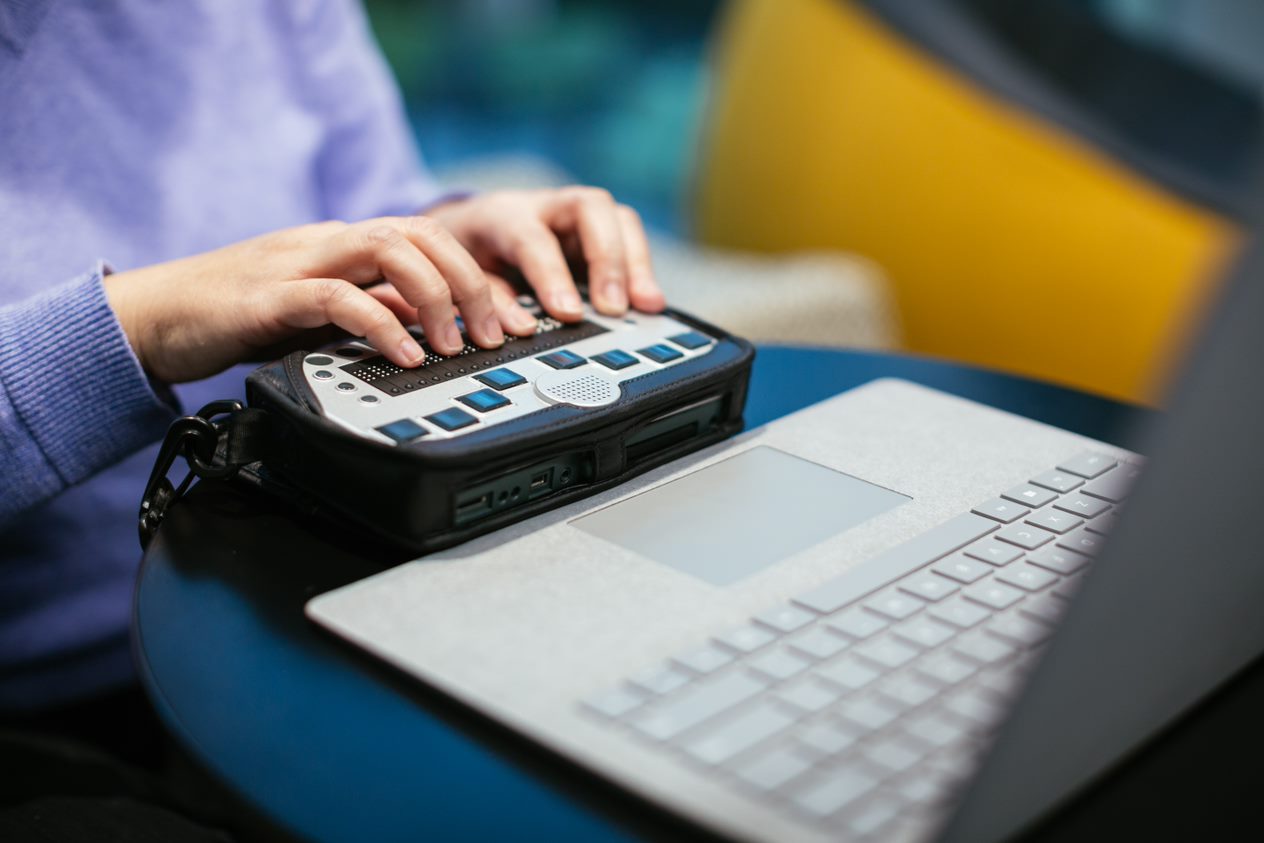Today, we kick off the 13th annual Microsoft Ability Summit, a day dedicated to the conversations that will advance the future of accessibility and disability inclusion. This year, Microsoft senior leaders including CEO Satya Nadella, and policy leaders such as Secretary of Transportation Pete Buttigieg, will join us at the summit, along with 20,000 attendees from 100 countries and the help of over 70 presenters, to imagine and begin the next steps towards the future of accessible inclusion. And there’s a lot to talk about this year!
What’s new at this year’s summit?
Let’s start with technology. Accessibility at Microsoft spans every aspect of our product portfolio from software to hardware and services like AI and is part of our company culture. This year, we have a range of new and exciting accessible technologies to talk about, including:
- New adaptive accessories: Today, we are announcing we are extending the customizable 3D printed attachments currently available for the Microsoft Business Pen and Microsoft Classroom Pen 2 to our existing Surface Pen later this year. The 3D-printed grips are printed through Shapeways and offer new ways for users with limited mobility to grip and use the pens and support their creativity and productivity on their Surface devices.
- ‘Accessibility Assistant’ in M365: As easy as checking spelling and grammar, today we are announcing new Microsoft 365 “Accessibility Assistant” to help creators produce more accessible content. These assistants offer better defaults, real-time remediation and clear guidance to prevent and correct accessibility issues. With the recent addition of accessibility checker in Visual Studio, creating inclusively is now easier for both creators and developers.
- Microsoft Translator: New languages! Microsoft Translator has today launched 13 new African languages, including Yoruba, Hausa and Igbo. Microsoft Translator now supports speech-to-text capabilities in 125 languages and lets users have real-time multi-language conversations, translate menus and street signs, websites, documents and more, making technology more inclusive for those who are deaf or hard of hearing around the world.
- New Inclusive Design for Cognition Guidebook: Launched a new Inclusive Design for Cognition Guidebook to help build products for people with various cognitive abilities.
- Azure advancements: Two announcements leveraging the Azure platform:
- Seeing AI: Microsoft’s Seeing AI app uses the power of Azure and AI to empower blind and low vision to navigate the world around them. We launched a new Seeing AI collaboration with Haleon and added over 1500 products to the Seeing AI code library. In addition, Seeing AI introduced a new Indoor Navigation feature, allowing someone who is blind or has low vision to independently navigate through a building by following spatial audio cues.
- LinkedIn: Today, more than 40% of LinkedIn posts include at least one image. LinkedIn is adding automatic alt-text descriptions and captioning to their platform leveraging Azure Cognitive Services for vision.
- Windows 11: We recently shared improvements to Windows 11‘s built-in screen reader, Narrator, to support more Braille displays, including three new Surface displays from HumanWare. Narrator can now interact seamlessly with accessible accessories and the voice access functionality is out of preview, enabling speech navigation access with Microsoft apps throughout Windows 11.
Accessibility and AI
AI has been a big topic this year as we find ourselves at a historic intersection of opportunity and responsibility to the world around us. AI has the potential to enhance human cognitive abilities in thinking, reasoning, learning and communication, but the evolution of AI also comes with great responsibility and must incorporate and address a broad range of diverse human needs, barriers, capabilities and experiences.
Microsoft is focusing on Responsible AI, with core principles of development specifically focused on accessibility and disability inclusion – build accessibly, include disability representative data and innovate. These principles and Responsible AI work in concert to accelerate accessibility.
Increasing representative data is also crucial to this process. Last year, Microsoft announced the Speech Accessibility Project, a cross-industry partnership with the University of Illinois, Amazon, Apple, Google, Meta and Microsoft to create the diverse speech data needed to make voice recognition technology more inclusive and useful for people with a range of diverse speech patterns.
At Ability Summit, we will be talking about the possibilities with the new AI-powered Microsoft Bing. From planning an accessible trip to making writing accessible code easier, we are just at the beginning of the possibilities of what AI can offer and we are listening and learning as we move forward. Please share your experiences as you play!
Microsoft’s commitment to accessibility
Accessible technology is a fundamental building block that can unlock opportunities in every part of society and empower people across the spectrum of disability. But it’s not just about technology. We are committed to tackling the disability divide and learning through our technology led strategy with three additional pillars, People, Partnership and Policy.
At the summit, we’ll explore each of these pillars including outcomes of our accessibility partnerships with Shell and Haleon, how we can progress inclusive hiring and our work with Mentra, and the future of transportation policy in the United States with Secretary of Transportation Pete Buttigieg and Brad Smith. These are just a few examples of how, by working together across these pillars, we can increase awareness and usage of accessible technology, expand skilling and hiring opportunities, and advocate for policies that advance accessibility as a fundamental right.
I look forward to the important conversations we’ll have at this year’s summit and hope all of you will join us. Keep your ideas and feedback coming, and if you need any technical support, remember that Disability Answer Desk is here to support you.

